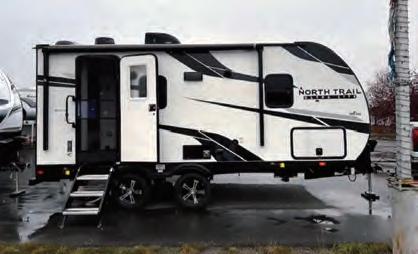











































































Connect in minutes. No long-term contracts.
Connect in minutes. No long-term contracts.






















































































Connect in minutes. No long-term contracts.
Connect in minutes. No long-term contracts.




































Hey Cora: I live in a nice condominium association, but I notice that not all my neighbors understand their condo documents and what they are for. Can you explain what a Resale Certificate is and why it’s important? Signed Condo Confusion
Dear Condo: Yes, I can but we need to break this down a bit. There are 3 different types of condominiums in Alaska, those that were built before the Horizontal Property Regimes Act and those after and those that are currently under construction. We are going to talk about the those that were built after the Horizontal Property Regimes Act, from the 1990s forward. For existing condominium units, this document is called a Resale Certificate, and it’s the “history” of payments and expenditures and everything else that has to do with “any and all” units in the association. Here are some things to know about what is in the huge compilation of papers!
What a SELLER needs to know:
1) Resale Certificates timing: Once the seller has a buyer for their condo, the seller must provide your buyer with a copy of the Resale Certificate at least 5 days before closing. If the seller does not, there are financial consequences to the seller that are expensive! So don’t wait until the last minute to get this part done. Usually, your realtor will take care of all this for you, but if you are not using a realtor, this is very important and if not done correctly, could cost you real money. (I know I said that twice, so take note)
2) Cost of the Resale Certificate: There is a cost for preparing this document, and the seller almost always pays for that cost. Typically, they run anywhere from $125 to $350. The management company that collects the dues and pays the bills will prepare the resale certificate for the buyer. IF your association is “self-managed” then the Resale Certificate must come from the Treasurer or Secretary of the Association. Most managers, whether hired or self-managed, will not provide this until it’s paid for upfront, and most will not take a credit card, be prepared to pull out the ol’ checkbook!
3) Time Limit: Because this document can be long and has important info, by law, the buyer is given 5 days to review. Anytime, in those 5 days review period, if the buyer doesn’t like what they are reading, they terminate their contract, get their earnest money – no questions asked. The buyers must do this in
writing, but a seller will want to have this “contingency” out of the way as soon as possible. One other thing, when the management is notified of a Resale Certificate order, they will tell you how long it will take to prepare the document. Sometimes, it can take weeks, calculate that prep time plus 5 days.
4) Signatures: Once the Resale Certificate is delivered to the buyer, the 5 days start, and the buyer signs and dates the document when they receive it. This is an acknowledgment of receipt is the sellers’ proof that the new buyer has received the document, and the clock starts ticking on those 5 days.
What a Buyers need to know:
1) Receiving the Resale Certificate: This is quite a document, and it could put you to sleep very easily. Start with the financials; watch for the words ‘special assessment’. These are ADDITIONAL funds collected by the association that just came up. For example, the association voted to have more lights in the parking area. It cost $12,000 to have light poles installed with automatic lights attached. There are 20 units in the association, each unit must pay $600 as a special assessment to the association in addition to their dues. Sometimes, these dues are spread out over 12 months – so the dues would be the set amount plus an additional $50 per month.
2) What does it look like: Well, it’s not a certificate! It’s either a notebook or a thumb drive, which is an electronic storage device that pops into your computer. The older your condominium association is, the longer this document will be. It’s the history of everything financially that has happened in the association. So, if there was a fire in unit 12 and there was work done in that unit, it will be documented here. If the neighbor has had warnings about their dog barking at 4 am and a fine is being assessed, that will be in here. If the roofs were replaced the
previous year, those costs will also be reflected here as well as its estimated life span. It’s a true working history of the property you are buying. Kind of like a real estate disclosure on steroids!
3) Review the history and meeting minutes: So, let’s take that fire in unit 12 again, the fire was put out of course, but unit 11 suffered water damage as a result! Unit 11’s insurance company is now suing unit 12’s insurance company for the damages. What a mess. Usually these are worked out between the insurance companies, but all this history is there for you to view and ponder over. This document can be a real “snoozer”, but it has crucial information about your purchase. There could be a quarrel between neighbors about squirrels; one wants to feed them, and another thinks they are just rats with fancy tails and wants them, well for lack of a better word, “dispatched”. All this correspondence is in there.
4) What else is in there: Insurance for the building, what exactly it covers and what it doesn’t. A budget for the dues, a breakdown showing where the dues go, who is late on paying their dues, are there any lawsuits filed against the association or owners. How much money is in the reserves account for re-roofing, re-paving, re-painting all those things.
5) Ratio of Ownership: I know this seems strange, but lenders like to see owners living on the property. Some types of lending require that more than 50% of the people that live in the condo association are owners of the property. If this number is off, like 60% renters and 40% homeowners, you may not be able to get financing when go to sell. These numbers are important for the manager to keep an eye on. This ratio can affect your ability to sell the unit in the future.
There you have it, very basic facts about the Resale Certificates. But I have one more thing for you that I am sure will just blow your mind, single family homes worth over a million dollars can also be condos! It’s how the original developer subdivided the property. It has nothing to do with the configuration of the specific building – it’s how the property was developed and recorded with the borough. I know of
acres
















































































































































Kids! Send in your coloring contest entry for a chance to win an 8” cake from Dairy Queen! One winner from each age group 4-6, 7-9 and 10-12 will be announced in the October 2024 Greatlander.
Name:
Parents - Please help your child legibly write their name. Use crayons, pencils or markers. Please NO GLITTER. Submissions must be received by September 25th, 2024. Mail entries to: GreatLander, 3110 Spenard












































